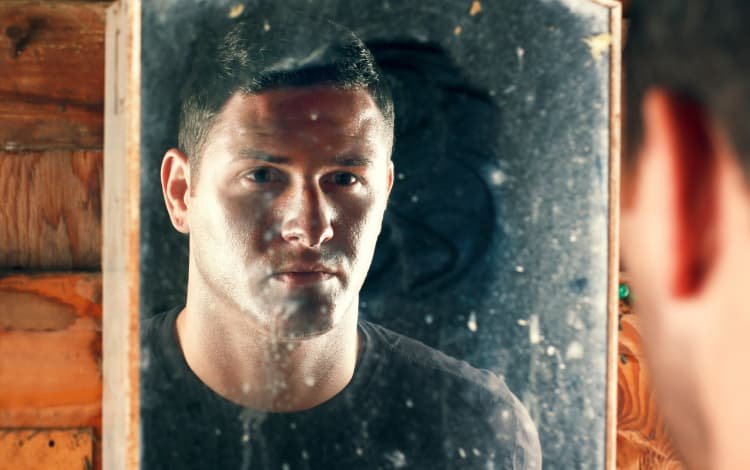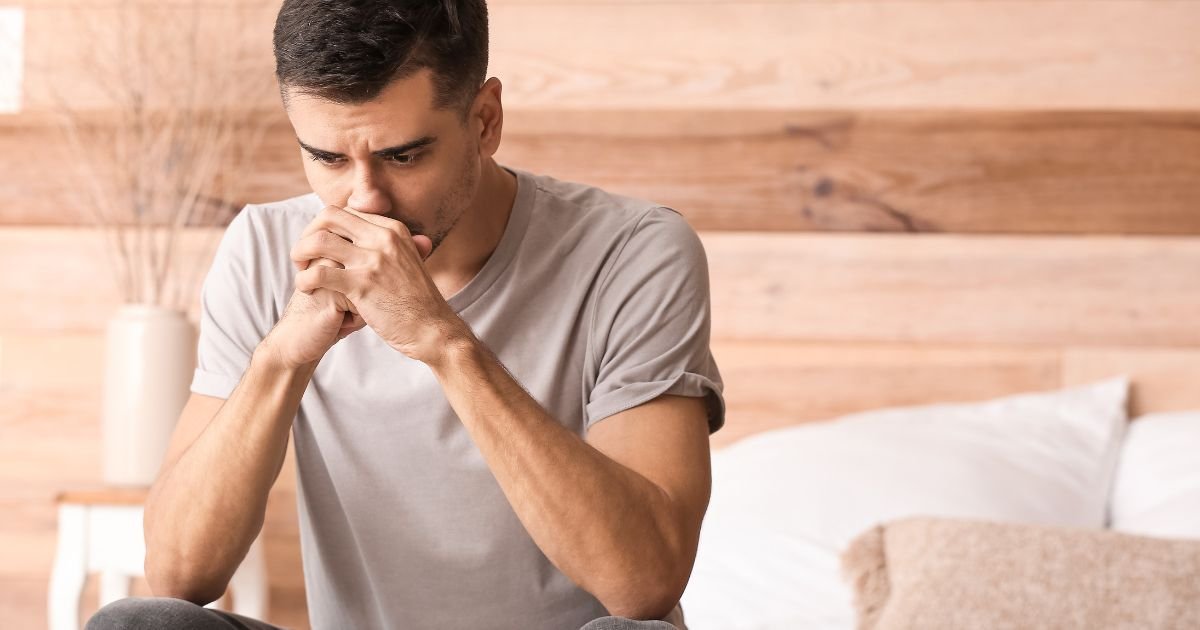Exploring Gay Mental Health in the LGBTQ Community
As a gay therapist who helps individuals within the LGBTQ+ community navigate their mental health challenges, I've seen firsthand the unique issues many gay men face.
In this article, I hope to provide valuable information and resources to empower the LGBTQ+ community and the general public. Specifically, we will examine the following:
Mental health conditions among gay individuals
Mental and emotional health needs of gay youth
The role of family and friends in supporting psychological stability
Addressing the unique mental and emotional challenges of gay men
The role of social media and technology in mental health
Barriers to psychological care for gay individuals
Intersectionality in gay mental well-being
Community and social support for mental health
Strategies for improving emotional resilience
The importance of self-care and self-compassion
Let's get started.
Mental Health Issues Among Gay Individuals
Numerous studies show that gay individuals are more likely to experience mental health issues than their heterosexual counterparts.
These circumstances lead to gay men facing unique challenges that impact their mental health, including behavioral and emotional problems.
Some of these problems include:
Internalized homophobia occurring when a gay man internalizes negative societal attitudes towards homosexuality, leading to self-hatred and psychological challenges.
Stress from coping with discrimination and stigma resulting in higher alcohol and drug use, serving as self-medication or an escape from their difficulties.
Discrimination, isolation, and feelings of not belonging contributing to elevated depression and anxiety levels.
Societal pressures related to body image or internal struggles prompting excessive exercise or eating disorders among gay men.
Stigma, discrimination, and internalized homophobia leading to self-destructive behaviors, including self-harm and suicidal thoughts or attempts.
Limited LGBTQ+-inclusive sex education and role models contributing to risky sexual behavior among gay people.
To avoid rejection, discrimination, bullying, and harassment, gay men withdrawing from social situations or isolating themselves.
Stress from dealing with discrimination, rejection, and harassment resulting in declining academic and professional performance.
It is vital to recognize that each person’s experience is unique, and not all gay men will face all or any of these psychological and behavioral problems. However, the is an exception rather than the norm.
Providing a supportive and inclusive environment, access to mental health professionals and resources, and promoting understanding and acceptance can help alleviate these challenges.
The Role of Family and Friends in Supporting Mental Health
Family members and friends play a crucial role in gay mental health support. Actively listening, validating experiences, and educating themselves on LGBTQ+ issues can create an inclusive and affirming sense of feeling understood.
Some ways to become more informed and effective allies include:
Learning more about LGBTQ+ history, terminology, and issues through books, articles, and workshops.
Fostering open conversations and active listening to understand LGBTQ+ experiences.
Offering emotional, psychological, and practical support when needed.
Respecting boundaries, avoiding prying, or making assumptions about LGBTQ+ individuals.
Using inclusive language, such as adopting gender-neutral and LGBTQ+-friendly terms.
Challenging stereotypes and counteracting homophobic, transphobic, and biphobic attitudes.
Advocating by participating in LGBTQ+ rights movements and policy changes.
Creating safe spaces and welcoming environments for LGBTQ+ individuals.
Encouraging visibility by celebrating LGBTQ+ events such as Pride parades and National Coming Out Day.
Learning from mistakes and being open to feedback and growth for better allyship.
Family and friends can reduce LGBTQ+ stigma and alienation. Acceptance and understanding make individuals more comfortable living and expressing their true identity. This can lead to increased self-esteem and overall emotional health.
Addressing Gay Mental Health Challenges
Gay men are at an increased risk of mental health conditions such as body dysmorphia, eating disorders, and substance abuse. They are also prone to long-term shame and guilt.
As a therapist, I use various therapeutic approaches to address these challenges, including:
Cognitive-Behavioral Therapy (CBT): This approach helps gay men identify and challenge negative thought patterns, develop healthy coping strategies, and improve self-esteem.
Acceptance and Commitment Therapy (ACT): This approach encourages self-acceptance and mindfulness, helping gay men to manage their emotions better and reduce the impact of their negative thoughts.
Online group therapy: Providing a safe space for gay men to share their experiences and receive support from others who understand their unique challenges.
Additionally, the ongoing HIV/AIDS epidemic disproportionately affects gay men. This leads to increased rates of anxiety, depression, and trauma-related difficulties. Therefore, adequate mental health support and resources should be available to those living with HIV/AIDS and those at risk of or affected by the epidemic in other ways.
The Role of Social Media and Technology in Gay Mental Well-being
Social media and technology can impact gay individuals' mental health both positively and negatively.
While platforms provide opportunities for connection and support, they can also contribute to feelings of inadequacy, isolation, and cyberbullying.
To navigate social media platforms effectively, gay men should be encouraged to practice healthy digital hygiene:
Setting boundaries: Limiting social media time and establishing clear session purposes.
Curating social feeds: Following accounts sharing positive LGBTQ+ mental health content.
Engaging in supportive communities: Participating in safe spaces for LGBTQ+ mental health discussions.
Using privacy settings: Controlling visibility and interactions on social networking and dating accounts.
Prioritizing self-care: Recognizing social media's impact and practicing self-care when needed.
Reporting and blocking: Addressing offensive content by reporting and blocking perpetrators.
Seeking professional help: Consulting an LGBTQ+-knowledgeable mental health professional if required.
Sharing mindfully: Considering the impact of shared content on others' mental states.
Applying content filters: Minimizing exposure to triggering content using platform filters.
Setting boundaries on dating and hookup applications: Limiting the time spent on dating apps to avoid unhealthy behavior, such as Grindr addiction.
Being an ally: Supporting LGBTQ+ voices and promoting mental health awareness and inclusivity.
Barriers to Psychological Care for Gay Individuals
Access to appropriate psychological health care is essential for the well-being of gay men. However, various barriers can prevent them from receiving the support they need.
Stigma and discrimination within healthcare settings can deter gay individuals from seeking help.
The lack of LGBTQ+ competent providers can result in inadequate care.
Financial constraints and the limited availability of specialized services in some geographical regions can further impede access to necessary care.
Efforts must be made to increase the availability of LGBTQ+-affirming counselors and therapists and reduce barriers to care. This includes advocating for policy changes that promote equal access.
It also includes providing training and education for healthcare professionals and increasing public awareness of the unique needs of the LGBTQ+ community.
Intersectionality in Gay Psychological Health
Gay individuals do not exist in a vacuum – they come from diverse backgrounds, races, and socioeconomic statuses.
Recognizing that these intersecting identities can compound the mental health challenges faced by gay individuals is essential. For example, a gay person of color may experience racism and homophobia, which can threaten psychological stability.
Understanding intersectionality helps mental health professionals tailor their treatments and support for gay individuals with multiple marginalized identities. This includes considering cultural competency and inclusivity in therapy approaches and acknowledging these individuals' unique experiences.
Community and Social Support for Emotional Well-being Among Gay Men
Strong social support networks and a sense of community are vital for promoting mental health and well-being among people. This hypothesis is backed up by decades of research on what makes people happy.
For gay men, connecting with the LGBTQ+ community can provide a safe space to share experiences, seek advice, and find encouragement.
Encouraging gay individuals to seek out and engage in LGBTQ+ community events, support groups, and online forums can help combat feelings of loneliness and increase resilience.
Additionally, fostering allyship among friends, family, and colleagues further bolsters social support networks for gay individuals.
Strategies for Improving Gay Mental Health
Addressing mental, emotional, and psychological health disparities among gay individuals requires a multi-faceted approach targeting individual, community, and societal levels.
Some strategies for improving gay mental health and resilience include:
Promoting LGBTQ+ inclusive education and awareness campaigns to reduce stigma and discrimination.
Implementing mental health screening and intervention programs targeting the LGBTQ+ community.
Encouraging self-care and coping strategies tailored to gay individuals' unique experiences.
Advocating for legal protections and policy changes that support LGBTQ+ mental fitness and well-being.
Expanding research on gay psychiatric and psychological health to understand this population's complexities better and develop evidence-based interventions.
The Importance of Self-care and Self-compassion
Self-care and self-compassion are vital components of mental health and well-being for LGBTQ individuals. Engaging in self-care activities and practicing self-compassion can help the LGBTQ community cope with stress, build resilience, and foster self-acceptance.
Some self-care activities might include:
Engaging in physical activity and exercise.
Spending time in nature or engaging in relaxation techniques, such as deep breathing or meditation.
Connecting with friends, family, or support groups who affirm and validate their experiences.
To practice self-compassion, gay men should be encouraged to:
Recognize and challenge negative self-talk.
Practice self-directed kindness and understanding during challenging moments.
Remember that everyone faces challenges and that seeking support is okay.
Take time to think and journal about feelings and experiences. Externalizing internal thoughts can help make sense of mental health challenges.
By incorporating these practices, gay individuals can better manage their mental health and overall well-being.
An Example of Gay Mental Health Challenges
To better illustrate the mental health challenges many gay men face, let's look at a hypothetical case study.
James, a 30-year-old gay man, has been struggling with feelings of anxiety and low self-esteem due to societal pressures and internalized homophobia. After experiencing discrimination at work and in his social circle, James started isolating himself, leading to increased feelings of loneliness and depression.
Through therapy, James would be able to identify and challenge his negative thought patterns and develop healthy coping strategies. He could also join a support group for LGBTQ+ individuals, which would help him feel less alone and better understood.
With time and continued support, James would start to feel improvements in his mental health and overall well-being.
My Final Thoughts on Gay Mental Health and Well-being
As a gay therapist, I am dedicated to supporting and empowering the LGBTQ+ community, especially gay men who face unique mental health challenges. By raising awareness, providing targeted resources, and fostering a sense of community, we can positively impact the mental health and well-being of gay individuals.
Remember, if you or someone you know is struggling with mental health challenges, reach out for help. No one should have to face these challenges alone.
Thank you for reading this article. If you found it helpful, please share it with others who may benefit from it.
And if you're interested in discussing your mental and emotional health, don't hesitate to get in touch. I am here to help.
Take control of your mental health.
Are you a gay man who is feeling lost and alone?
With therapy, you can gain the tools and support you need to overcome obstacles and achieve your goals.









